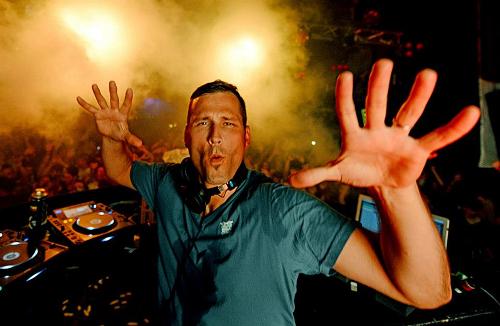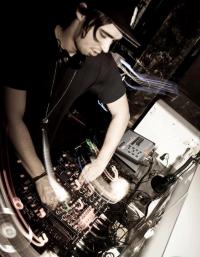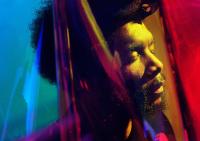DJ OF THE WEEK 2.11.13: KASKADE

It would be easy for the so called purists of the dance music scene to dismiss Kaskade as yet another one of the new breed of EDM DJs, someone who doesn’t get the deep soulful roots of the genre or doesn’t take it seriously. Well, they would be wrong.
Born Ryan Raddon in Evanston, Illinois, Kaskade was more than familiar with House music growing up. He developed a deep love for the genre early on in his life and set his sight on becoming a part of it, somehow. However, being a Mormon, he had some other responsibilities to take care of first. After serving a two year full-time mission for The Church of Jesus Christ of Latter-day Saints in Japan, he moved to Salt Lake City to attend the University of Utah. Wasting no time, he opened a record shop called Mechanized Records. In 2001, he scored a gig as an A&R assistant for Om Records, so he packed up and moved to San Francisco.
It was only a year later that Kaskade saw his first official single release “What I Say.” It wasn’t until 2004 and the release of his first studio album ‘In the Moment’ that saw Kaskade crack the charts for the first time. His first single to crack the top 10 was “Steppin’ Out” which made it to #5 on Billboard’s Hot Dance Club Play chart and #6 on Dance Radio Airplay. The fourth single “Everything,” reached #1 on Billboard’s Hot Dance Club Play. Kaskade had arrived.
In the following years, Kaskade has gone on to release six more studio albums, many more singles, remixes and collaborations; many landing on the charts as well. He has worked with some of the biggest names in the EDM scene such as Mark Farina, Roger Sanchez, Tiesto, Adam K, Skrillex, Seamus Haji, Deadmau5, and then there is the A list pop stars such as Beyonce, Rihanna, Outkast, Britney Spears, and the list goes on and on and on.
Kaskade has of course circled the globe as an superstar DJ, but these days DJs also have to work the festival circuit and Kaskade has done more than his fair share of these, rocking out at upwards of 200 festivals a year going back a decade! He’s headlined at Ultra Music Festival in Miami had them giddy at the Electric Daisy Carnival in Las Vegas, Nevada, killed them at Coachella, and more.
Kaskade’s work has been recognized by more than just his fans. The industry has taken notice too. Kaskade made his way onto the DJ Mag’s Top 100 DJ’s list coming in at number 30, Rolling Stones The Top 25 DJs That Rule The Earth, and even Forbes The Worlds Greatest DJ’s list. In 2011, he was awarded DJ Times American DJ of the Year award.

Now, despite all these accolades, we’re sure many are still not impressed, especially those that believe the entire industry needs a makeover. But in case that doesn’t do it for you, maybe the following will convince you otherwise.
See, the LA Times recently featured a piece that spoke very harshly about the EDM scene, to which Kaskade did not take too kindly. He didn’t just bitch on Twitter or ignore it, he said something about it. In a piece that was not only well written but better written and immensely more informed than that of the LA Times, Kaskade schooled the powers that be and set them straight on what this scene is really about.
I don’t know about you, but that says a lot to me. You need to be very hard up to not recognize when someone is sincere and coming from the heart, and Kaskade has more than proven that he is that and more. Not that he has to either, as some of the achievements I have listed above show, he doesn’t need our approval. But I will say, we should all be more accepting of the different faces out there representing dance music, or EDM, or whatever you want to call it. And if you’re one of those that thinks this new school of EDM DJs is not the real deal. You should think again.
Press play on this mix from Kaskade and listen while you read his rebuttal of the LA Times piece below.
This past Sunday, the LA Times ran an article which was essentially an inflammatory pummeling of the EDM scene. It painted a picture of “Ecstasy-fueled underground” raves, bumped up into the mainstream, leaving a trail of dead, drug-addled kids being picked up by the “…coroner’s wagon rolling down desert roads.”
Please. I’m all for looking hard at things that need to change, but first the fiction has to be knocked out of the discussion. Let me set a few things straight.
First off, this article is irrelevant and outdated. Perhaps if these journalists had written this twenty years ago, when the truth was a little more ragged, they could have made an argument that wasn’t so laughable. Back when warehouses were being broken into, fire codes were ignored, dodgy generators were powering a massive sound system and restrooms were non-existant. This was a time that safety probably wasn’t exactly job one. Things were smaller then, though. There weren’t tens of thousands of people looking to gather in one place, not like now. This scene has grown, and in response to the people it serves, it has grown up.
Today, massive events are being held on terms that have been scrutinized by engineers, civil servants, fire chiefs, policemen, and all manner of bureaucratic safety hoops. As EDM’s numbers have become larger, we’ve become more accountable. No longer hiding in an abandoned warehouse, we’re paying taxes, paying dues, and stimulating the hell out of each cities’ economy that hosts an event. Before the doors ever open, there is a string of green lights that have to be run through by people whose business it is to keep these events safe. The same codes put into place for every other genre of music applies to EDM. To say otherwise is untruthful and adheres to dangerous stereotyping.
I wouldn’t dare say we ignore the tragic accidents that happen. I wouldn’t dare say they don’t happen. But it takes a rudimentary understanding of the Basic Laws of Probability to guess that the more people that show up to these festivals, the larger the risk is that something goes awry. This isn’t unique to this music. This is a universal principle. Can we hope to avoid it? Absolutely. Can we take every precaution and security measure to hedge the odds? Definitely. But can the promoter be held responsible for the actions of the individuals at his events? No he can not.
What it comes down to is this: The responsibility to address substance abuse and addiction cannot come down to people who are event promoters. Not only is it unrealistic to expect them to tackle such a huge problem, it’s an enormous insult to those who have made it their life’s work to do so. Clearly, if the US Government hasn’t come up with the magic bullet to quell the problem of drugs in this country, it is not reasonable to expect an event promoter to pull this kind of trick out of his hat either.
I am dug in so deep that articles like this one, smacking of uninformed bigotry fire me up in a pretty passionate way. To assign responsibility of regulating drug use to concert promoters is ludicrous, in the extreme. To paint a picture (bordering on hysteria) of a community of people as capricious and reckless drug users is irresponsible.
This is a conversation that has been going on for decades. I don’t expect it to end here. But know this: as far as a music culture goes, EDM is the one who will accept the kids on the outliers, the ones who get bullied, the ones who feel like they may not quite fit in. This community is exceptional in its ability to bond all types together, and I am not exaggerating when I say it saves lives. Our audience is intelligent and kind, discriminating only in regards to which sound they like best. Our audience is unprecedented in their drive to proactively support each other.
There’s your story, LA Times. Do the world a favor and dig into that for a change, punks.


